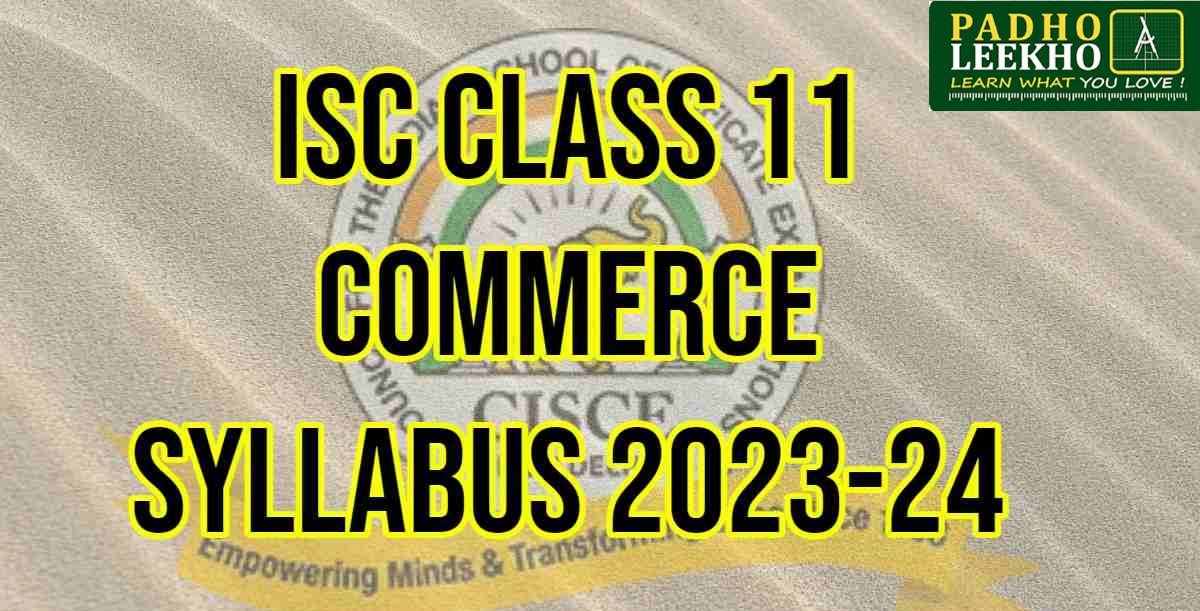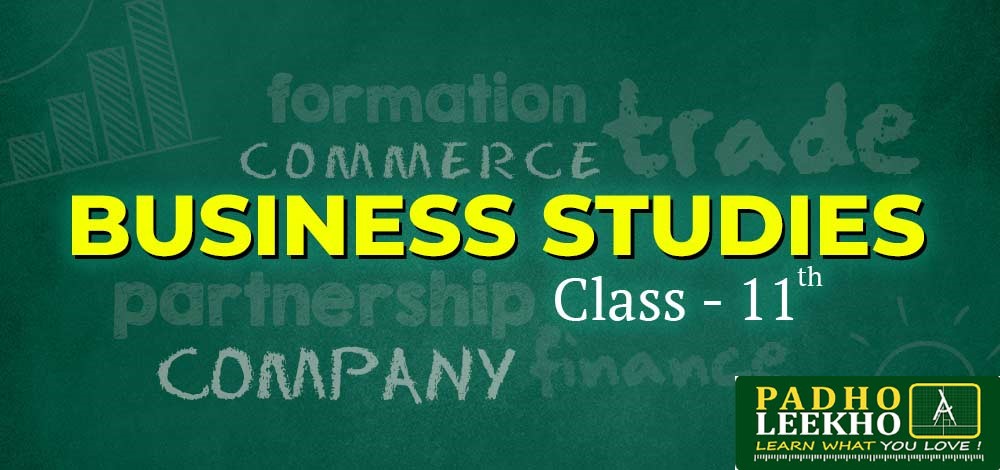ISC Commerce Class 11th Syllabus
Part 1 (20 marks) consists of compulsory short answer questions testing knowledge, application and skills relating to elementary / fundamental aspects of the entire syllabus.
Part II (60 marks) consists of eight questions out of which you are required to answer five questions, each carrying 12 marks.
Unlock Exclusive Access To ICSE Class 11th Commerce Course Materials.
ISC/ICSE Class 11th Commerce Courses By Padho Leekho
1. Nature and Purpose of Business
(i) Classification of human activities – economic and non economic.
(ii) Definition and concept of business; classification of business activities.
(iii) Business objectives
2. Forms of Business Organizations
(i) Introduction to business organizations.
(ii) Sole trader – objectives; formation; merits and demerits.
(iii) Partnership
- Meaning, features; types of partners and partnership firms.
- Registration of Partnership firms.
- Evaluation of partnership; merits and demerits.
- Comparison of sole proprietorship and partnership.
(iv) Corporate Organizations.
(v) Public Sector Undertakings.
- Meaning; characteristics, objectives, role and forms of Public Sector Undertakings (Departmental Undertakings, Public Corporations and Government Companies).
- Public Private Partnerships.
(vi) Co-operative organizations – meaning; characteristics and types.
ENROLL For ISC (ICSE) 11th Commerce Best Courses
3. Social Responsibility of Business and Business Ethics
Concept and need for social responsibility.
Responsibility towards owners, investors, consumers, employees, government and community; Responsibility of business towards protection of environment; Meaning and importance of Business ethics.
4. Emerging Modes of Business
(i) E-business.
Scope and benefits, Resources required for successful e-business implementation, online transactions, payment mechanisms,
security and safety of business transactions.
(ii) Outsourcing.
Concept, need and scope of BPO and KPO.
(iii) Smart Cards.
Meaning and utility.
5. Stock Exchange
(i) Meaning and importance.
(ii) Functions and services.
(iii) Major Stock Exchanges in India (BSE, NSE, DSE, ASE) – types and locations.
(iv) Types of operators – Brokers, Jobbers, Bulls and Bears.
(v) Terms used in Stock Exchange – ex-dividend, cum dividend, spot delivery, forward delivery.
(vi) SEBI – functions and objectives.
6. Trade
(i) Wholesalers.
Meaning and services of wholesaler to retailer, customer and producer.
(ii) Retail trade
- Meaning and characteristics.
- Types of retail trade – Itinerant and small scale fixed shops: departmental store, chain store, mail order houses, tele shopping, franchise, consumer cooperative stores, hypermarkets and automatic vending machines.
- Documents used in home trade.
(iii) Role of Chambers of Commerce and Industry and Trade Associations.
Meaning and functions of Chambers of Commerce and trade associations.
7. Foreign Trade
(i) Meaning, difference between internal trade and external trade.
(ii) Export trade – Meaning, objectives and procedure of export trade.
(iii) Import trade – Meaning objectives purpose and procedure.
(iv) Documents involved in international trade.
(v) World Trade Organization.
8. Insurance
(i) Insurance – Meaning, objectives and purpose.
Meaning, objectives and purpose of insurance; Concept of re-insurance and double insurance.
(ii) Risks in business – insurable and non-insurable.
Risks in business – insurable and non-insurable – meaning and examples of both. Characteristics of insurable risks.
(iii) Principles of insurance.
Fundamental principles to be explained: utmost good faith; insurable interest; indemnity; contribution; doctrine of subrogation; causa proxima. mitigation of loss.
(iv) Types of insurance: life and non life.
Types of insurance – life, health, fire, marine, motor, social and fidelity insurance (Meaning and importance only).




























